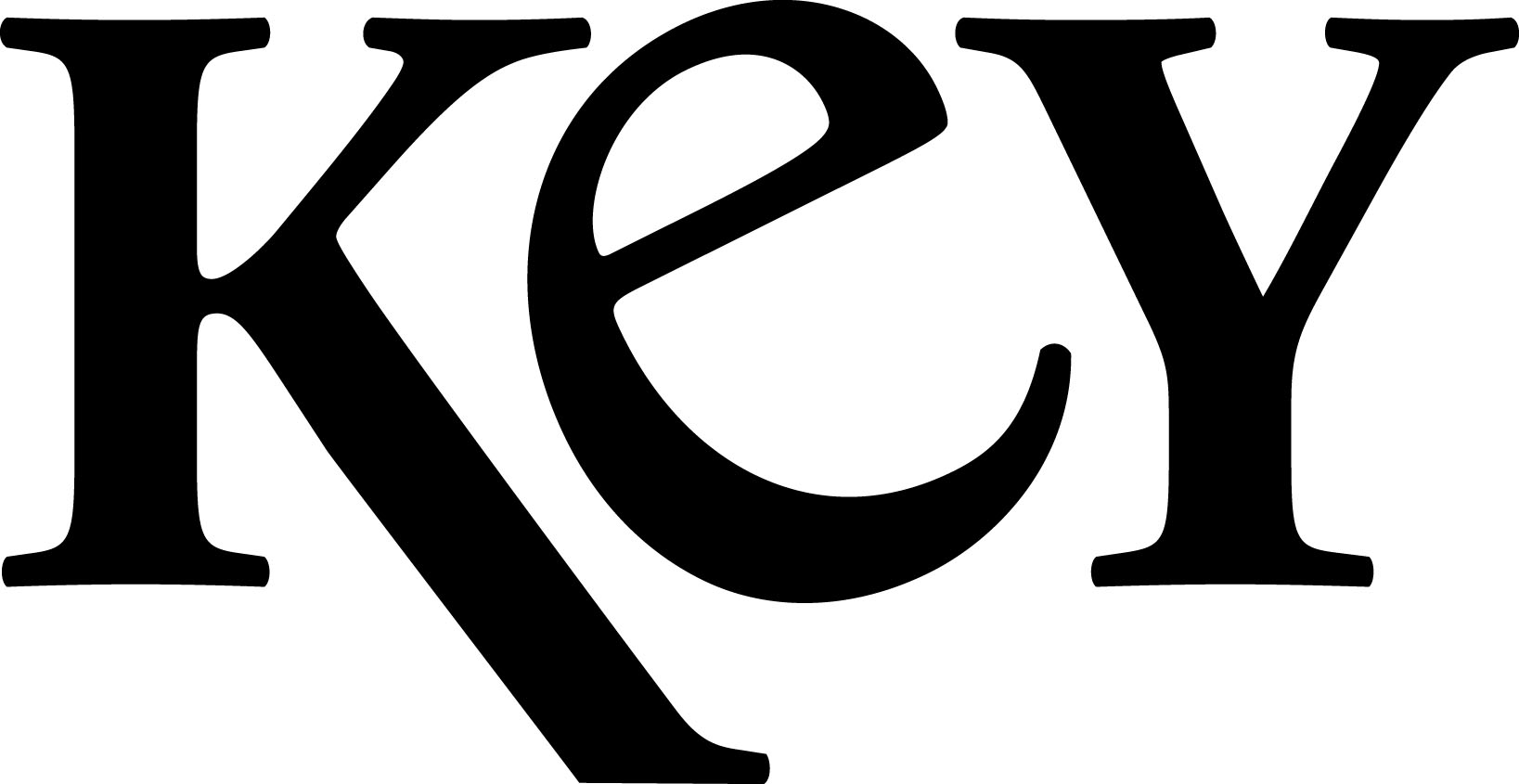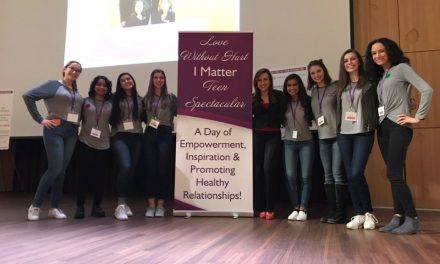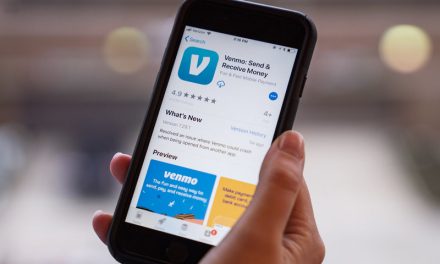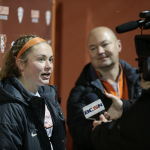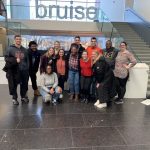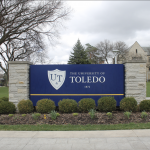
creates cultural connections
that crush assumptions
Nader Mokeddem studies English at Badji Mokhtar University in western Algeria. Hannah Fragapane is a senior University student in the international studies program.
Although these students are on separate continents almost 5,000 miles apart, a Facebook group has made their unlikely connection a reality.
A new component of Dr. Lara Lengel’s International Communications course, this cross-cultural exchange is giving American and Algerian students the opportunity to not only learn about a different society and culture but also break down some of the assumptions the Middle East and America hold about each other.
American students in Lengel’s class and Algerian students from two universities discuss a chosen weekly topic in a shared Facebook group. Topics range from wedding traditions to educational systems. Most recently, students talked about nationalism and patriotism.
Through discussion, commonalities between both societies have been realized. “In many ways, they [Algerian students] are a lot more similar to us than many people would expect,” Fragapane said. Many of the students have the same hobbies.
Fragapane said several of the American students share favorite televisions shows and movies with Algerian students. Additionally, prior beliefs or assumptions about Americans or Algerians are challenged. Mokeddem, from Badji Mokhtar University, said his perception of the education system in the United States has changed since his interaction with
Lengel’s class. He believes education is a basic human right and should be acquired freely by all. He said he was shocked to find out that American students pay to attend college and many find themselves in debt after graduation.
In Algeria, education is free and accessible to everyone. Graduate student Meriem Mechehoud is orchestrating this exchange. A Fulbright scholar from Algeria, Mechehoud is working on her second master’s degree here at the University.
She’s had this exchange planned out since she noticed the untapped potential of online intercultural connections as an undergraduate in Algeria. “We live in a global society. The world is literally at our fingertips, on our phones and computers, but many of us don’t have the drive and motivation to use it,” Mechehoud said.
Tapping into the resources available through a global society encourages curiosity and understanding, two key components of the University’s recent push for diversity and inclusion.
Those themes have been hot topics on the University’s campus this year in light of the recent election and various incidents, including racist graffiti.
University President Mary Ellen Mazey, Provost Rodney Rogers and Vice President of Student Affairs Thomas Gibson have been reaching out to large student organizations, such as the Black Student Union and BG Falcon Media, to gain a better understanding of student concerns and hear student suggestions for University improvement.
We live in a global society. The world is literally at our fingertips, on our phones and computers, but many of us don’t have the drive and motivation to use it.
— Mechehoud
Additionally, Mazey, Rogers, Gibson and college deans have started hosting office hours. Students can sign up for an appointment online and meet oneon-one with an administrator of choice.
The hope is to promote communication between students and administration, as well as to open channels of discussion about inclusion and diversity.
At a time when Islamophobic and xenophobic rhetoric are penetrating multiple avenues of communication, Mechehoud said her program is another step toward developing diversity and inclusion at the University.
She hopes this exchange inspires students and engenders a passion for harnessing the information available through technology, and then use it to break down the misunderstandings and misconceptions between cultures.
She sees this exchange as a way to promote inclusion and create a more welcoming
environment for international students on campus and in the community. Although the Facebook group is shared with 14 American students and 20 Algerian students, Mechehoud said a small cultural exchange can be a large cultural exchange if you see students as webs instead of individuals.
She said each student represents a network of friends, family and co-workers where their stories of the exchange can spread.
“This is not only one person. This is a whole network. So you look at everyone as a group of people and connections,” Mechehoud said. “This is how your effect can be bigger.”
Although the exchange impacts each student in a distinct way, Mechehoud said the one similarity is a story of their experience. “I’m giving the students, American and Algerian, an experience and a story to tell in the future. That story is the most important component,” she said.
Although continued interest in foreign cultures is encouraged, Mechehoud doesn’t have a structured goal for the exchange. She said every involved student will take away something different from the experience.
For Mokeddem, interaction with American students has provided him with an opportunity to improve his English skills as well as give him insight into the lives of American students.
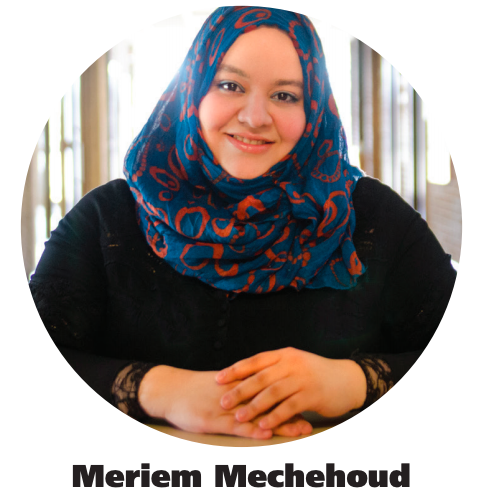
Fragapane said she has come to value the importance of understanding historical events through the experiences of those affected. She gave the example of the French colonization of Algeria.
“When we learn through a textbook, we aren’t understanding the emotional significance or impact that it had on Algerians,” she said.
Aside from humanizing an issue, Fragapane has also come to learn that textbooks don’t always align with the experiences of the Algerian people.
Although Mechehoud graduates this spring, she hopes this model is continued by other faculty members and students with other countries and communities across the globe. She encourages others to start their own exchange and emphasized the simple and cost-friendly nature of a web-based exchange.
The set up is free. Creating a Facebook page takes little more than a few clicks of a mouse. All you need are people who are interested in learning about a new culture and are willing to share about their own.
The current exchange is limited to University students in the international studies program.
However, after taking part in the cross-cultural interactions with Algerian students, Fragapane said a program like this could benefit everyone if given the opportunity, regardless of their field of study.
“This exchange is a simple set up. The University needs to encourage more exchanges like this in many disciplines,” Fragapane said.
“All students can benefit from cultural exchanges. They don’t have to be international studies students to get involved in something international.”
All students can benefit from cultural exchanges. They don’t have to be international studies students to get involved in something international.
—Fragapane
